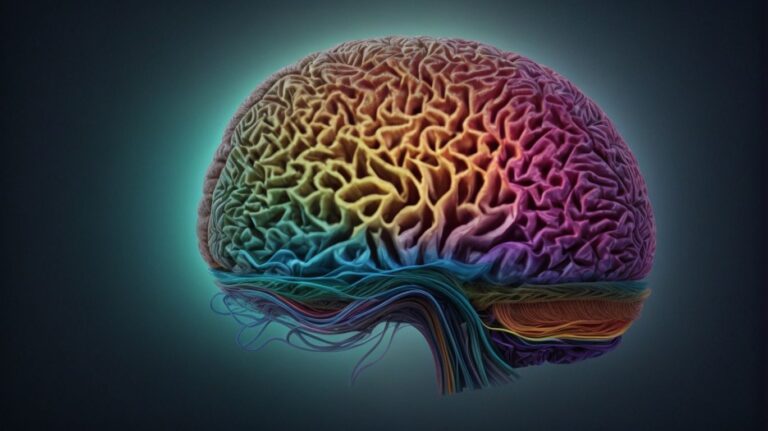Jean Piaget, a renowned psychologist, made significant contributions to the field of psychology with his groundbreaking work on cognitive development. His theory of cognitive development revolutionized the way we understand how children acquire knowledge and develop their thinking skills.
In this article, we will explore Piaget’s major contributions to psychology, his theory of cognitive development, the stages of cognitive development according to Piaget, criticisms of his theory, and the practical applications of his work in education, parenting, and the workplace. Join us as we delve into the legacy of Jean Piaget’s work and its lasting impact on the field of psychology.
Contents
- 1 Who Is Jean Piaget?
- 2 What Is Piaget’s Theory of Cognitive Development?
- 3 How Did Piaget’s Theory Revolutionize Psychology?
- 4 What Is Piaget’s Impact on Education?
- 5 What Are Some Practical Applications of Piaget’s Theory?
- 6 What Is the Legacy of Jean Piaget’s Work?
- 7 Frequently Asked Questions
- 7.1 What are some of Jean Piaget’s key contributions to the field of psychology?
- 7.2 How did Jean Piaget’s theories on cognitive development impact the field of psychology?
- 7.3 What is the theory of cognitive development proposed by Jean Piaget?
- 7.4 How did Jean Piaget’s concept of schemas impact psychology?
- 7.5 What were some criticisms of Jean Piaget’s theories?
- 7.6 How have Jean Piaget’s contributions influenced modern-day psychology?
Who Is Jean Piaget?
Jean Piaget, a Swiss psychologist known for his groundbreaking work in child psychology, was born on December 12, 1896, in Neuchatel, Switzerland, and passed away on June 19, 1980.
His interest in studying children’s development began during his early years and led him to pursue a career in psychology. Piaget’s educational journey was marked by his studies at the University of Neuchatel and the University of Zurich, where he focused on biology and philosophy, laying the foundation for his future research.
Throughout his career, Piaget published numerous influential books and papers that revolutionized our understanding of how children learn, think, and perceive the world around them. He introduced the theory of cognitive development, which emphasized the importance of interaction between a child’s biological maturation and environmental experiences.
What Are His Major Contributions to Psychology?
Jean Piaget made significant contributions to the field of psychology, particularly in the study of cognitive development and genetic epistemology.
His groundbreaking theories have had a profound impact on our understanding of how individuals acquire knowledge and develop intellectually. Piaget’s pioneering work emphasized the role of schema formation, assimilation, and accommodation in shaping cognitive growth. He proposed a series of stages, such as the sensorimotor stage and the formal operational stage, to explain the sequential development of mental abilities. These stages outline the progression from basic sensorimotor reflexes to abstract reasoning and problem-solving skills.
What Is Piaget’s Theory of Cognitive Development?
Piaget’s theory of cognitive development is a cornerstone in psychology, outlining the sequential stages through which children acquire intelligence and understanding.
The four primary stages in Piaget’s theory are sensorimotor, preoperational, concrete operational, and formal operational, each marked by distinct cognitive milestones.
Assimilation is the process by which individuals incorporate new information into existing mental frameworks, while accommodation refers to modifying existing cognitive structures to fit new information. Piaget emphasized the importance of schema, mental frameworks that help organize and interpret information. These stages provide a framework for understanding how children’s cognitive abilities develop over time and how they make sense of the world around them.
What Are the Stages of Cognitive Development According to Piaget?
Piaget identified four stages of cognitive development: sensorimotor, preoperational, concrete operational, and formal operational, each characterized by distinct cognitive abilities and challenges.
Sensorimotor stage, the first stage, occurs from birth to about 2 years old. Infants in this stage experience the world through their senses and actions, developing object permanence and basic motor skills.
Preoperational stage, typically from ages 2 to 7, is marked by egocentrism, language development, and symbolic play but limited understanding of logic.
Concrete operational stage, ages 7 to 11, shows improved abilities in understanding conservation, classification, and logical reasoning about concrete events.
Formal operational stage, around age 11 and onward, exhibits abstract thinking, hypothetical reasoning, and metacognition.
What Are the Main Concepts of Piaget’s Theory?
Piaget’s theory revolves around key concepts such as intelligence, assimilation, and accommodation, which describe how individuals adapt their mental structures to new information and experiences.
Assimilation is the process where individuals incorporate new information or experiences into their existing mental frameworks. For example, a child who knows what a cat is might see a dog for the first time and call it a cat because it is the closest existing schema. On the other hand, accommodation involves modifying existing schemas or creating new ones to fit new information. For instance, when the child realizes that the dog is different from a cat, they adjust their schema for ‘cat’ and create a new one for ‘dog’.
How Did Piaget’s Theory Revolutionize Psychology?
Piaget’s theory revolutionized psychology by shifting the focus to the cognitive development of children, emphasizing the role of education in fostering intellectual growth.
Central to Piaget’s theory is the idea that children progress through stages of cognitive development, each with distinct ways of thinking and problem-solving. This notion has profoundly influenced educational practices, highlighting the importance of tailoring learning experiences to align with a child’s current cognitive abilities.
- Piaget’s stages of cognitive development, including the sensorimotor, preoperational, concrete operational, and formal operational stages, serve as a framework for educators to understand how children learn and grow intellectually. By recognizing these stages, teachers can create lesson plans and activities that cater to a child’s specific cognitive level.
What Are the Criticisms of Piaget’s Theory?
Despite its acclaim, Piaget’s theory has faced criticisms regarding its universal application, stage sequence rigidity, and underestimation of children’s abilities in certain domains.
One widespread critique of Piaget’s theory stems from the notion that his stages of cognitive development may not be universally applicable to all children. Critics argue that the developmental milestones he proposed might not align with the experiences or capacities of diverse populations. Concerns have been raised about the strict delineation of stage boundaries, suggesting that cognitive development might be more fluid and variable than Piaget’s model suggests.
Some critiques emphasize that Piaget’s theory may not fully capture the complexity and variability of children’s cognitive skills. It is argued that the theory’s emphasis on formal logic and abstract reasoning tends to underestimate young children’s competencies in practical problem-solving domains. Critics point out that children may demonstrate sophisticated cognitive abilities earlier than Piaget’s stages indicate.
What Is Piaget’s Impact on Education?
Piaget’s work has had a profound impact on education, shaping modern teaching methods that emphasize active learning, student-centered approaches, and developmental appropriateness.
His groundbreaking theory of cognitive development has paved the way for educators to understand the stages of intellectual growth in children better.
Children’s innate curiosity and natural tendency to explore align closely with Piaget’s belief in learning through experience and hands-on activities.
Teachers now strive to create environments that stimulate critical thinking and problem-solving skills in students, fostering a deeper understanding of concepts.
How Did Piaget’s Theory Influence Teaching Methods?
Piaget’s theory revolutionized teaching methods by promoting hands-on experiences, discovery learning, and the adaptation of curriculum to match students’ developmental stages.
Active learning, a key concept derived from Piaget’s theory, emphasizes engaging students in meaningful activities that foster critical thinking and problem-solving skills. By incorporating activities that allow students to explore, experiment, and draw conclusions on their own, educators create an environment that promotes deeper understanding and long-term retention of knowledge.
Scaffolding, another principle inspired by Piaget, involves providing structured support to students as they navigate challenging tasks. This approach allows learners to build upon their existing knowledge and skills gradually, leading to greater confidence and independence in their learning process.
Student-centered instruction, influenced by Piaget’s belief in the active role of learners, shifts the focus from the teacher to the student. This approach encourages personalized learning experiences, where students’ interests, abilities, and needs shape the curriculum and learning activities. By recognizing and accommodating individual differences, educators can create a more inclusive and effective learning environment.
What Are Some Practical Applications of Piaget’s Theory?
Piaget’s theory offers practical applications in various domains, including parenting strategies that support children’s cognitive growth and workplace environments that encourage intellectual exploration.
Parents can leverage Piaget’s theory to understand their child’s developmental stages better, tailoring activities and learning experiences to suit their cognitive abilities. By providing age-appropriate challenges and fostering a supportive learning environment, parents can facilitate their child’s intellectual development.
Similarly, businesses can draw insights from Piaget to create workspaces that promote creative thinking and problem-solving among employees. Offering opportunities for exploration, collaboration, and skill-building can enhance employee engagement and productivity.
How Can Piaget’s Theory Be Used in Parenting?
Piaget’s theory provides valuable guidance for parents, helping them understand their child’s cognitive abilities, adjust expectations, and create a supportive environment for optimal development.
By incorporating Piaget’s principles into daily interactions, parents can encourage their children to explore new ideas, solve problems independently, and think critically. For instance, during playtime, instead of just providing solutions, parents can ask open-ended questions like ‘What do you think will happen if…’ to stimulate their child’s reasoning skills. This approach not only nurtures creativity but also boosts confidence in their problem-solving abilities.
Additionally, being patient and allowing children to make mistakes fosters a growth mindset, showing them that learning is a journey of discovery rather than just getting the right answers.
How Can Piaget’s Theory Be Applied in the Workplace?
Piaget’s theory holds relevance in workplace settings by guiding adult learning initiatives, promoting problem-solving skills, and fostering a culture of continuous development and innovation.
By incorporating Piaget’s cognitive development stages into employee training programs, businesses can tailor learning experiences to match the cognitive abilities of their employees, ensuring maximum understanding and retention.
Encouraging critical thinking through real-life scenarios and interactive exercises can help employees apply theoretical knowledge to practical situations, enhancing their problem-solving capabilities and decision-making skills.
Creating a work environment that values ongoing learning and skill development not only boosts employee engagement and satisfaction but also fosters a growth mindset that drives innovation and adaptability in the ever-evolving business landscape.
What Is the Legacy of Jean Piaget’s Work?
The legacy of Jean Piaget’s work endures as a foundational pillar in psychology and education, shaping our understanding of cognitive development, learning processes, and the importance of individualized instruction.
His groundbreaking theories, such as the stages of cognitive development, have provided a framework for educators and researchers to delve into how children acquire knowledge and understanding. Piaget’s emphasis on the role of interaction with the environment in shaping intellectual growth continues to resonate in contemporary educational practices.
His work not only sparked a paradigm shift in how we perceive the learning process but also laid the groundwork for a more nuanced approach to curriculum design and assessment that acknowledges the uniqueness of each learner. The enduring impact of Piaget’s ideas can be seen in the emphasis on hands-on, experiential learning in modern pedagogical strategies.
Frequently Asked Questions
What are some of Jean Piaget’s key contributions to the field of psychology?
Jean Piaget was a Swiss developmental psychologist known for his groundbreaking theories on cognitive development in children. His contributions to psychology include the concept of schemas, the theory of cognitive development, and the stages of development.
How did Jean Piaget’s theories on cognitive development impact the field of psychology?
Piaget’s theories challenged traditional beliefs about childhood development and paved the way for a better understanding of how children think and learn. His theories also influenced other areas of psychology, such as education and language development.
What is the theory of cognitive development proposed by Jean Piaget?
Piaget’s theory of cognitive development suggests that children actively construct their understanding of the world through their experiences and interactions. He believed that children progress through four stages of development: sensorimotor, preoperational, concrete operational, and formal operational.
How did Jean Piaget’s concept of schemas impact psychology?
Schemas refer to mental structures that help individuals organize and interpret information. Piaget’s concept of schemas revolutionized the field of psychology, as it provided a framework for understanding how knowledge is acquired and how it influences behavior and development.
What were some criticisms of Jean Piaget’s theories?
Some psychologists have criticized Piaget’s theories for being too focused on cognitive development and neglecting other aspects of development, such as social and emotional development. Others have criticized the age ranges assigned to each stage, arguing that development is more fluid and individualized.
How have Jean Piaget’s contributions influenced modern-day psychology?
Piaget’s theories are still widely studied and applied in psychology today. They have influenced other theories and research on cognitive development and have had a significant impact on our understanding of how children learn and develop. Piaget’s work continues to inspire new research and discoveries in the field of psychology.




